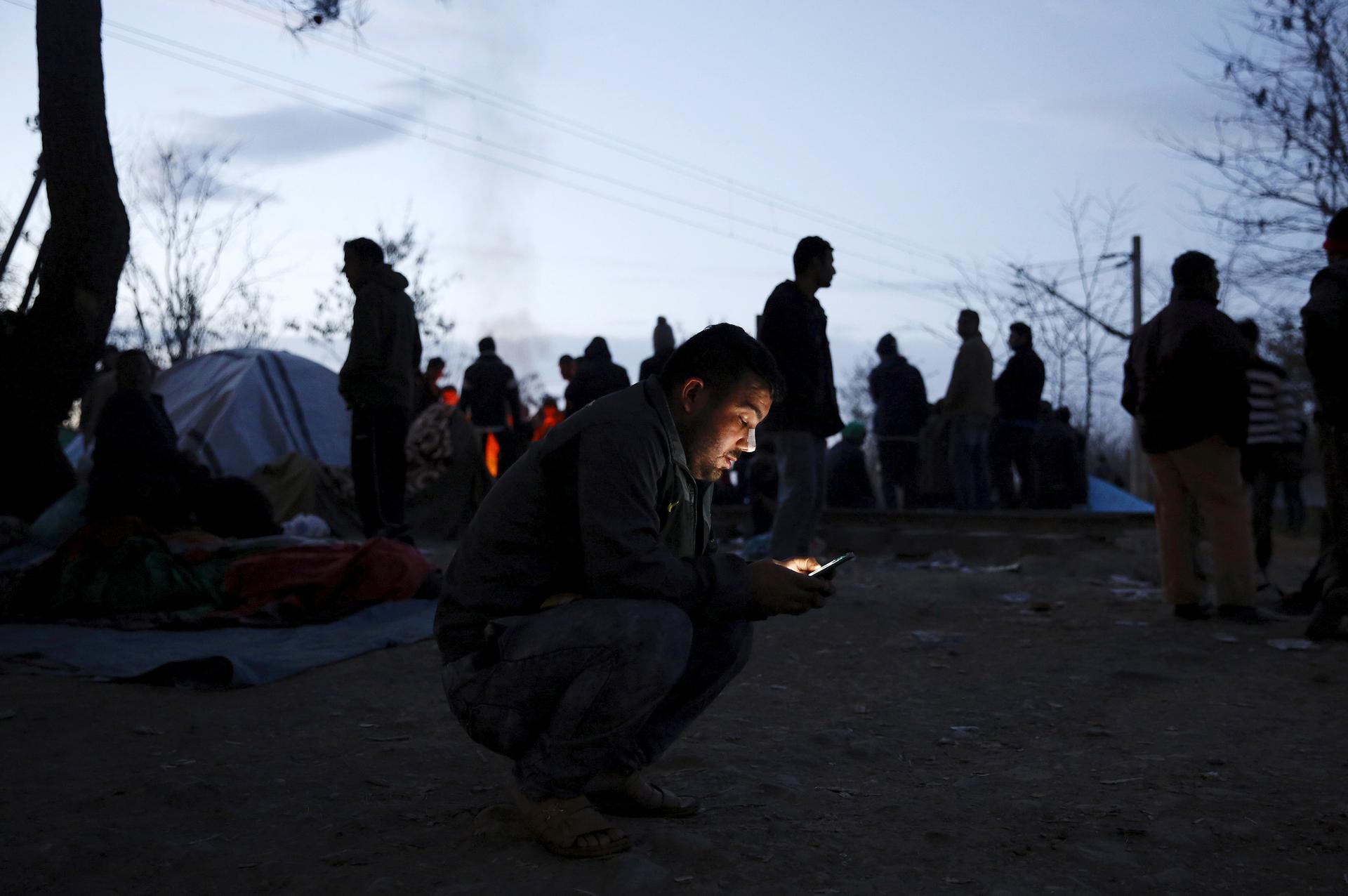A stranded migrant checks his smart phone for news as he waits at the Greek-Macedonian border near the Greek village of Idomeni. November 24, 2015.
Germany is notorious for its thorny bureaucracy — or burokratie, which comes from the German word for office, buro.
The country has a lot of offices, as Munzer Khattab has discovered in the past year. “When we first arrived here, I was shocked,” he said. There’s the Federal Office for Migration and Refugees, the Foreign Office, and the Citizenship Office, to name just a few.
Khattab fled his home country of Syria in January 2015. Before he reached Berlin, he crossed the Mediterranean in an inflatable boat and spent days in a Hungarian jail.
New challenges were waiting upon his arrival to Germany. Asylum seekers often struggle to overcome the barriers of language and red tape. During Khattab’s first week in Berlin, officials asked him for a meldebescheinigung — which, he eventually learned, is a certificate of registration. It took him a year to receive refugee status.
Khattab wants to make the process easier for new arrivals. So he and a group of friends are working on a new smartphone app that they call “Bureaucrazy.”
“The application actually takes the forms from the official offices, and translates [them] to a mother language,” says Khattab. Users can also fill out paperwork in Arabic or English, and the app translates them into German. The app also directs users to the correct office for submitting a given form.
Khattab didn’t know how to code when he arrived in Berlin. But he heard about the ReDI School of Digital Integration, a nonprofit that aims to expand economic opportunities for refugees, and decided to enroll.
“The first session was brainstorming about the problems we already had in Germany — the language, and the internet connection, and the housing,” says Khattab. “We were all frustrated about the bureaucracy.”
The team just completed a prototype of Bureaucrazy. They’re hoping to find investors and to launch the app for the public in early 2017.
The goal, Khattab says, is to give new arrivals to Germany a better experience than he had. With help from the app, he hopes they'll take their meldebescheinigung to the right buro.
The story you just read is accessible and free to all because thousands of listeners and readers contribute to our nonprofit newsroom. We go deep to bring you the human-centered international reporting that you know you can trust. To do this work and to do it well, we rely on the support of our listeners. If you appreciated our coverage this year, if there was a story that made you pause or a song that moved you, would you consider making a gift to sustain our work through 2024 and beyond?
